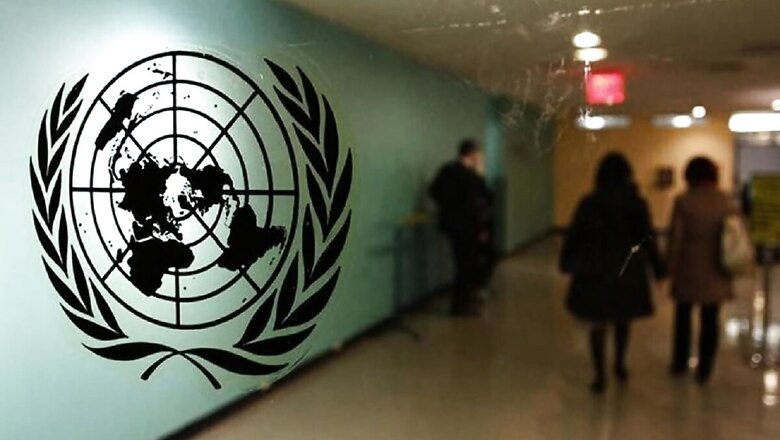
views
The global economy is expected to contract by 4.3 per cent this year, hit hard by the coronavirus pandemic, which will wipe out global output worth over USD 6 trillion, a UN report said on Tuesday. Output in India is expected to shrink by 5.9 per cent in 2020, before rebounding to 3.9 per cent the next year, it added. The lockdown has parachuted economists into unfamiliar territory, as the current situation is not like a war economy nor is it traditional supply-side constraints or a financial crisis threatening banking sector, said the UNCTAD 'Trade and Development Report 2020 – From global pandemic to prosperity for all: Avoiding another lost decade'.
"In a global health crisis, putting lives before profits has triggered a series of simultaneous and mutually reinforcing supply, demand and financial shocks. "In the wake of these shocks the global economy will contract by an estimated 4.3 per cent this year, leaving global output by year's end over USD 6 trillion short (in current US dollars) of what economists had expected it to be before the Covid-19 pathogen began to spread," said the UNCTAD report.
The global economy had entered dangerous waters by late 2019 and the growth was slowing across all regions with a number of economies contracting in the final quarter. There was a widely shared expectation that things would improve in 2020, led by an expected rebound in the large emerging economies, with global growth returning to its long-run potential in 2021. In short, the world is grappling with the equivalent of a complete wipeout of the Brazilian, Indian and Mexican economies, it said. Trade will shrink by around one-fifth this year, foreign direct investment flows by up to 40 per cent and remittances will drop by over USD 100 billion, it added.
The biggest falls in output will be in the developed world, with some likely to register a double-digit decline, the UN report said. "But the greatest economic and social damage will be in the developing world where levels of informality are high, there is continued reliance on a few commodities or tourism as a source of foreign exchange, and fiscal and policy space is limited," it warned.
The report expects Latin America to be hit with 7.6 per cent drop in output and more declines, possibly in double digits, for largest economies such as Argentina and Mexico. This contrasts with East Asia, where growth will remain in positive territory, albeit much lower than in 2019. China, for example, is expected to grow at 1.3 per cent. Output in India is expected to shrink by 5.9 per cent in 2020, before rebounding to 3.9 per cent the next year, it said.
"Next year will likely see a rebound. However, it will be uneven within and across countries and uncertainty will persist," UNCTAD Secretary-General Mukhisa Kituyi said in the report. Unemployment will be on an upward trend, more and more companies will be facing the threat of bankruptcy; supply chains will be fragile; confidence will be shaken and demand will be weak, Kituyi said.
"In this condition, the wrong policy steps – and ignoring the experience of the last decade – could trigger further shocks which would not only derail recovery but could usher in a lost decade," the official added. Kituyi said the global economic crisis caused by COVID-19 throws up a stark choice — continue misguided policy choices or collectively chart a new path that leads from recovery to a more resilient, more equal and more environmentally sustainable world in line with the ambition of the 2030 Agenda for Sustainable Development.
"Neither path is preordained. Building a better world is a matter of conviction and collective action. The lives of future generations and of the planet itself will depend on the choices we all take over the coming months," he said. ? Despite massive relief packages adopted by advanced economies and the medical community coming together in search of a vaccine, "uncertainty abounds" and "anxiety persists", the report said.
Additional waves of infection and death cannot be ruled out, it added. The UN trade body said the overall impact on employment this year due to lockdown, temporary relief and return to work is difficult to gauge.
It expects about 90-120 million people to be pushed into extreme poverty in the developing world. Hunger and malnutrition are certain to follow and income gaps will widen everywhere.
"These developments point toward a massive uptick in sickness and death," it added. Hope of a rapid economic bounce-back from a scientific breakthrough — in the form of an effective and widely available vaccine — cannot blind us to other man-made dangers ahead, the report said.
If governments opt for premature fiscal tightening in an attempt to bring down public debt and businesses adopt an aggressive cost-cutting strategy in an attempt to boost exports, the recovery will likely fizzle out, with a double-dip recession a real possibility in many countries in 2022, it added.




















Comments
0 comment